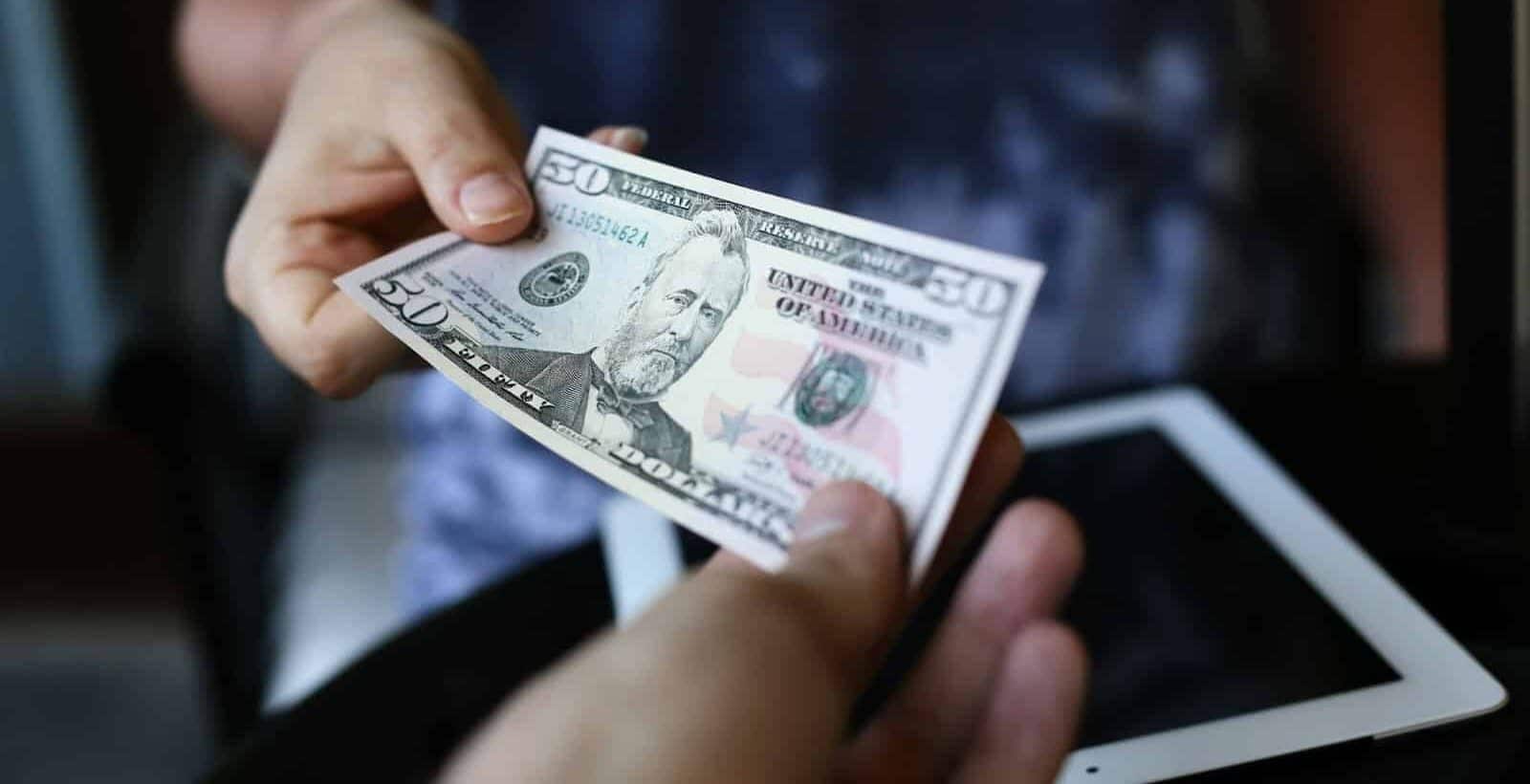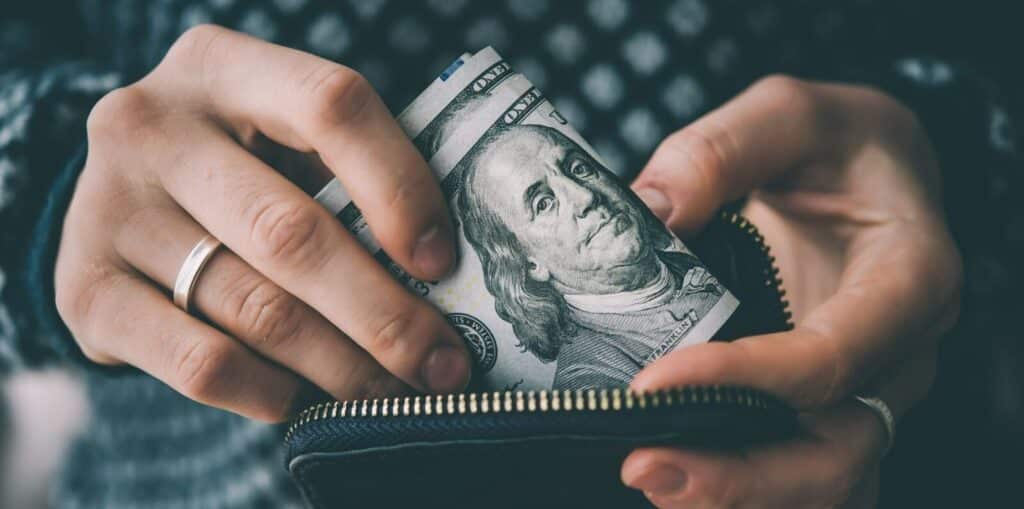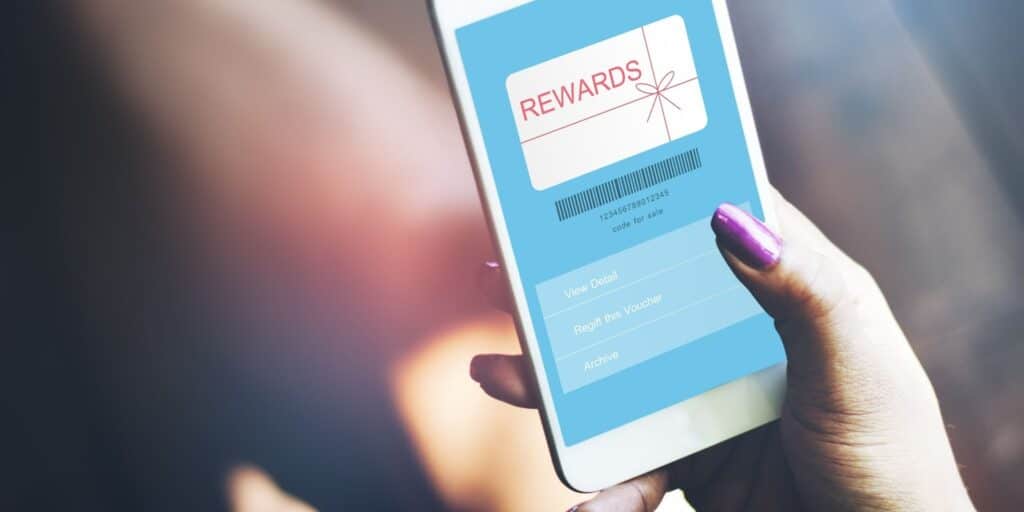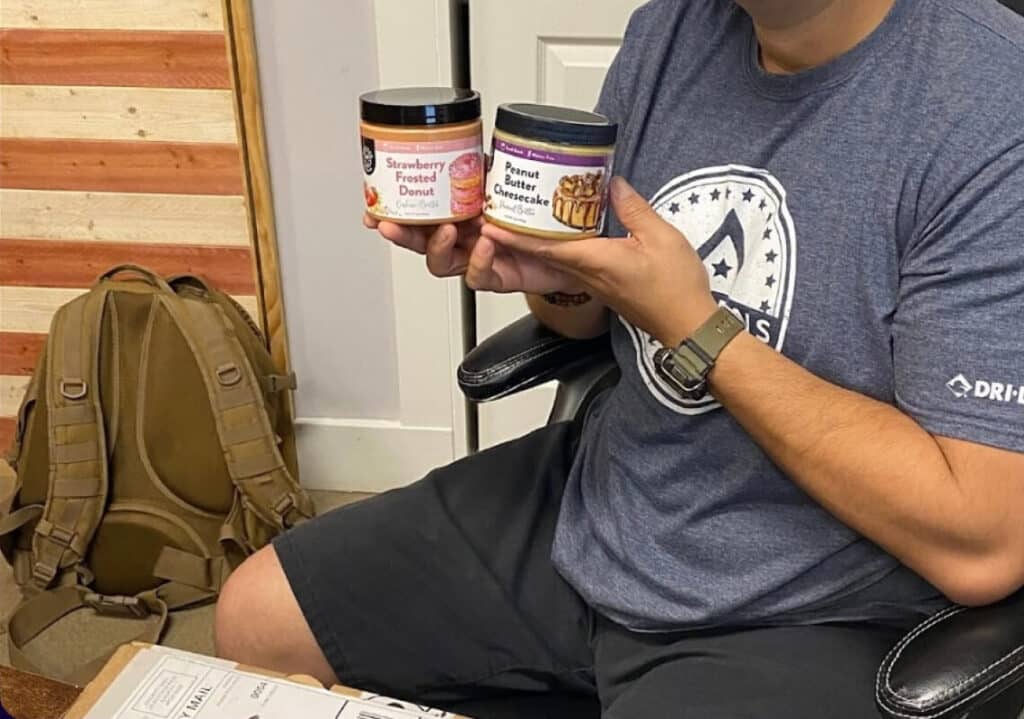Do Brand Ambassadors Get Paid

The use of brand ambassadors for business promotion isn’t a new concept. Even before the age of the internet, ambassadors were famous people that got deals with various brands due to their influence, but there was always the question of how meaningful the relationships with the brands they represented were since they usually promoted them for money.
As the internet and social media took over the world, the meaning of brand ambassadors evolved. Brand ambassadors today don’t need to be celebrities or famous internet personalities—they can even be loyal customers who love your brand. Because of this, the motivation and compensation structures for ambassadors have also changed.
Do brand ambassadors get paid in cash? Are there other ways to pay ambassadors?
Let’s get you some answers!

Are Brand Ambassadors Paid in Cash?
The short answer is: yes, but it’s a bit more complicated than that.
Brand ambassadors are rarely full-time positions that guarantee a stable income. Paying them salaries or hourly wages is becoming less common today for the following reasons:
- Brand ambassadors represent brands out of passion and love for their products and not necessarily to make a living.
- Companies are represented by large teams of brand ambassadors rather than a single famous individual—paying such large teams in cash would be uneconomical and counter-productive.
- There are newer, less conventional compensation systems that brands can use today.
While it is not so common, some brands do offer monetary compensation in the form of:
- Cash for completed activities
- Sales commissions
- Salaries
Cash for Completed Activities
This is one of the most common forms of monetary compensation that brands use. Here, brand ambassadors are compensated with money when they complete a particular activity. For instance, a brand ambassador may be paid when they mention or promote the business on Instagram.
To effectively utilize this approach, some brands set up tiered payment structures. For example, newly recruited ambassadors get points or rewards for completed tasks while more experienced ambassadors, who have completed numerous activities, can get cash.
Sales Commissions
For many retail brands, brand ambassadors are expected to generate new sales and boost brand revenue. Since they’re directly making money for the company, these ambassadors are usually compensated in cash via sales commissions.
To track sales and commissions for individual ambassadors, companies provide unique referral links. When a customer purchases a product using an ambassador’s link, the sale is recorded and credited to the brand ambassador.
Brands should also determine the commission rate for their ambassadors, and the most common options are:
- Percentage commission—It’s difficult to determine precise affiliate commission rates that brands use to compensate their ambassadors, but they are estimated to be between 5% and 30% of the product’s price in most cases. This approach is suitable for brands that offer a huge range of products with widely varying prices.
- Fixed commission—If your brand’s product portfolio is on the smaller side, you can go for a flat-rate commission as it may be more economical for the business.
- Commission bonuses—You can reward top-performing ambassadors with bonuses to keep the program exciting. If your product or service is subscription-based, you can offer extra commission when customers renew their subscriptions.
Overall, you should start your commission structure on the lower end of the commission scale. This will give you more room to adjust the rates as your brand ambassador program and your business grows.
Salaries
This is the least common form of cash payment for ambassadors. While earnings from commissions vary based on the number of sales, salaries are fixed and determined when setting up a brand ambassador program.
Few brands use salaries to compensate their ambassadors due to the nature of the ambassador marketing strategy they use—they are usually brands that rely on student ambassador programs, like Pepsi, which used to offer stipends to its student ambassadors.
What Is the Average Pay for a Brand Ambassador?
Most companies cannot afford to put brand ambassadors on their payroll—they instead opt for less conventional compensation methods like rewards.
For brands that use salaries, the estimated average annual salary for this position is $33,500, according to Glassdoor.
Many brands prefer to reach out to established content creators who charge per post. Influencers and professional content creators determine their rates based on the size of their following and engagement rates which can be quite pricey.
Still, smaller influencers (who are also much cheaper) are becoming more popular due to their highly specific audiences and higher rates of meaningful engagement.
For a better understanding of the cost of relying on influencers, here are the average prices they usually charge on Instagram:
| Influencer Tier | Number of Followers | Average Price per Post |
| Nano-influencer | 1,000–10,000 | $10–$100 |
| Micro-influencer | 10,000–100,000 | $100–$500 |
| Mid-tier-influencer | 100,000–500,000 | $500–$5,000 |
| Macro-influencer | 500,000–1,000,000 | $5,000–$10,000 |
| Mega-influencer | 1,000,000 and more | $10,000+ |
Other Options for Brand Ambassador Compensation
While money may make the world go round, most brand ambassadors will settle for other perks and rewards. Regardless, your brand ambassadors should feel like they are getting a good deal for their participation. This means that your rewards should match the effort put in by each ambassador, and that’s why many ambassador programs rely on tiered reward systems.
There are several types of rewards companies use to motivate their ambassadors, including:
- Promotional items
- Free products
- Discounts
- Gift cards
- Exclusive access to new products and services or company events
- Invites to company headquarters
Promotional Items
When starting your brand ambassador program, give your ambassadors free promotional items, such as pens, water bottles, T-shirts, notebooks, etc. It’s an excellent way to onboard and welcome your freshly recruited brand representatives. This approach makes ambassadors feel appreciated as a part of the organization and motivates them to promote your brand more effectively.
Free Products
These are the items or services that the company sells but gives to its brand ambassadors for free or at a massive discount. In most companies, free products are given after achieving a particular milestone. These milestones are tracked through a points system where brand ambassadors gain points when they complete assigned activities. After they collect enough points, they can redeem them for free products.
Brand ambassadors often value being compensated in free or discounted products because they often already love your products and brand even before becoming official ambassadors.
Discounts
If you’re giving out exclusive discounts to your ambassadors, you have to decide whether you want to offer lifetime discounts or point-based discounts:
- Lifetime discounts—These are the discounts that can be awarded automatically to all brand ambassadors when they join your program. This way, ambassadors have the opportunity to purchase more of your products, driving sales and directly generating revenue for the company. Lifetime discounts are usually provided to ambassadors via unique discount codes for their online purchases.
- Point-based discounts—When ambassadors reach a specified number of points for completing their tasks, they can redeem the points for a good deal or a discount code instead of freebies. This approach motivates ambassadors to meet the program’s goals and also helps improve sales.
Gift Cards
Brands can also use gift cards to reward their ambassadors. You can decide to include gift cards for other popular brands or include your own gift cards in the reward structure.
Like free products and discounts, gift cards are also earned via points-based reward systems.
Including your brand’s gift cards as rewards increases the number of purchases by brand ambassadors or enables them to accumulate store credit that they can use for bigger purchases later.

Exclusive Access to New Products and Company Events
The feeling of exclusivity that comes with having yet-to-be-released products creates a sense of belonging for your ambassadors. This type of reward works both ways as brand ambassadors can be the first people to test your new line and provide valuable feedback before you release it to the general public.
Access to brand events also enhances the feeling of community that you want your ambassadors to have. Rewarding your ambassadors with access to brand events has the following benefits:
- The brand ambassadors can network with relevant stakeholders, such as customers and sponsors, and recommend your brand or products to them on-site.
- They can distribute promotional materials or even help organize the event.
- They can take photos and videos and talk about your event in their social media posts
- Ambassadors can contribute to the success of your events by promoting them in advance to their followers on social media.
Invites to Company Headquarters
If you have a physical store or company headquarters, you should invite ambassadors to visit because they’re a part of your organization. Organize a tour of your offices, manufacturing plants, or any other relevant location that can help them connect better with your brand and values.
During the tour, you can connect with your ambassadors by listening to their opinions, providing paid meals, and giving them promotional products and free samples.
How Companies Show Appreciation to Their Brand Ambassadors
Compensation and rewards are transactional in nature—while they’re great for boosting morale and motivation, it takes more than compensating your ambassadors for your brand ambassador program to be successful. You have to foster genuine relationships with them, and an excellent way to do this is by showing appreciation to these valuable brand representatives.
Here are several ways you can build strong ties with your ambassadors and promote a close-knit ambassador community:
- Send personalized thank-you notes—After ambassadors reach a specific milestone, you can send them personalized thank-you notes, congratulating them on the achievement. You can accompany the note with a thoughtful gift, like their favorite product from your brand.
- Create an ‘ambassador of the month’ program on your company’s website or social media—This is an excellent way to acknowledge your top performers every two weeks, once a month, or at the end of the year. Featuring ambassadors on your website or official social media accounts strengthens your relationship with them as they feel more appreciated.
- Organize special networking events and trips for your ambassadors—If you want your ambassadors to meet and network, you can plan get-togethers or even company trips. This will allow them to develop closer relationships with your company and other ambassadors and build a stronger community with your brand at the center.

How Can Businesses Set Up Compensation Structures for Their Brand Ambassadors?
There are a few steps brands can follow to develop effective reward systems for their brand ambassador programs:
- Decide how you’ll incentivize your ambassadors—You can decide to compensate your ambassadors with money, other types of rewards, or a combination of both. Ensure that the form of compensation you choose is economical yet motivating.
- Develop a point-based system for rewarding ambassadors—Give ambassadors points for completing activities. Decide on the points allocated for each completed task and define how they can be redeemed for rewards.
- Build a rewards catalog—Your catalog may contain free products, deals and discounts, gift cards, and custom rewards. It should be easily accessible and transparent regarding what ambassadors can get for their efforts and collected points.
- Create tiers for rewards—The rewards should be organized based on their value. For example, you can have low-tier rewards for completed daily activities, mid-tier rewards that require ambassadors to earn and save points for a few weeks or months, and high-tier rewards for ambassadors that are the most active in your program.
- Integrate your reward system with e-commerce stores and track referral sales—For retail brands, integration with e-commerce platforms, like Shopify and WooCommerce, is vital. It helps track completed sales through referral links and streamlines the issuance of commissions.
- Issue out rewards automatically—With your structure set up, you can start giving out rewards to your brand ambassadors. Ideally, this process should be automated and happen in real-time so that your ambassadors aren’t kept waiting for too long, and you don’t have to track everything manually.
How Other Brands Compensate Their Ambassadors
Different companies across all kinds of industries come up with various compensation structures that make sense for their goals, the sizes of their ambassador programs, and their niches. Here are a few examples of what some companies give as rewards to their ambassadors:
| Brand Ambassador Program | Niche | Type of Compensation |
| Xbox Ambassador Program | Gaming |
|
| Lululemon Ambassador Program | Fitness apparel |
|
| Maker’s Mark Ambassador Experience | Distilled spirits |
|
Set Up Your Ambassador Program and Reward Systems With BrandChamp
For the compensation systems to run smoothly, businesses need to set up winning brand ambassador programs with clearly defined goals, guidelines, and management procedures. There are a lot of activities that go into compensating ambassadors, including:
- Creating a viable point-based reward system
- Issuing points for completed activities
- Building a rewards catalog
- Monitoring referral sales
- Issuing payments/rewards
- Keeping track of issued rewards
For community managers and program admins, managing all these activities can be time-consuming and nearly impossible without a proper, automated brand ambassador program—this is where BrandChamp’s solution comes in.
BrandChamp is a software solution that is designed to automate all aspects of brand ambassador management, with a special focus on building better, more transparent communities and handling ambassador compensation without any hiccups.

How BrandChamp Optimizes Brand Ambassador Management
When compensating ambassadors via our platform, community managers can schedule and automatically issue rewards. They can also:
- Access a comprehensive history of all issued incentives
- Provide ambassadors with a gamified experience that allows them to be rewarded in multiple ways, including free products, discounts, and commissions
- Integrate the company’s e-commerce store with popular e-commerce platforms, such as Shopify and WooCommerce
- Track completed sales through referral links and automatically issue out commissions
Apart from handling compensation, BrandChamp can also be used by managers to streamline other day-to-day administrative tasks, such as:
- Recruiting and onboarding brand ambassadors
- Creating and delegating activities and tasks
- Keeping tabs on completed activities
- Reviewing brand ambassadors’ content before they post it to their accounts
- Monitor relevant metrics for user-generated content
- Set up leaderboards and community pages for ambassadors to connect with one another and check out the content other ambassadors create
On the same platform, brand ambassadors can create their accounts where they can create user-generated content, see their assigned tasks, submit their posts for review, and collect rewards.
With our streamlined and automated system for ambassadors and brand community managers, you can easily set up, manage, and scale your ambassador program and get more time to focus on other aspects of growing your brand.
Brands That Manage Their Ambassadors with BrandChamp’s Help
Businesses from every industry and of every size can use our platform to develop their ambassador programs and customize them to their needs. The experiences of our clients prove how valuable our automating ambassador program management is.
Passion Planner
This brand that makes planners, journals, and sticker books created its ambassador program, the PashFam, as more customers wanted to interact with Passion Planner in a more meaningful way.
Passion Planner wanted a digital brand ambassador platform where they could engage with ambassadors and create customizable, meaningful activities that would allow their loyal customers to interact with their products the way the brand intended, and BrandChamp was their solution.

The brand now uses our platform to manage and stay in touch with over 900 ambassadors. Passion Planner loves BrandChamp not only for the extra sales but because we helped them build a great, transparent community and fully customize their experience for a more personal feel.
Ragnar Relay

Ragnar is a brand that focuses on organizing events for relay runs and other long-distance team-based running sports. Before BrandChamp, the brand had an ambassador program with over 300 ambassadors, but it was extremely difficult for them to manage it since everything was done manually. Ragnar’s community managers struggled with assigning tasks, issuing instructions, and maintaining accountability.
With our platform, the brand was able to smooth out all of these issues. Now, they can easily:
- Access social media profiles of aspiring ambassadors during the recruitment
- Create a four-part training program for ambassadors
- See the performance metrics for individual ambassadors
- Develop activities and tasks ambassadors have to complete
EHP Labs
This fitness supplement brand struggled at first with its ambassador program because it was manually managed in spreadsheets. Handling the basics was so time-consuming that the program manager couldn’t work on team-building activities or even reward brand ambassadors.
As their ambassador program grew, it became virtually impossible to handle the pressures of proper ambassador management—the need to automate was evident.
After moving to BrandChamp, the brand saw several improvements immediately:
- Increased brand ambassador sales revenue
- Seamless recruiting and reward processes
- Improved relationships with brand ambassadors
- A better overview of completed activities
- More practical ways to track the revenue coming in via ambassadors’ unique codes

If you want to learn more about how our platform works and how you can use it to streamline your ambassador management activities, reach out to our team and schedule your demo!






